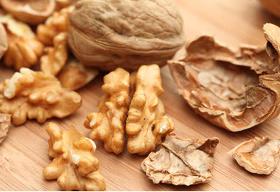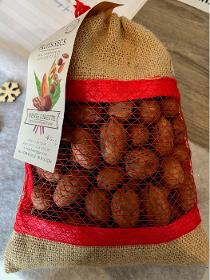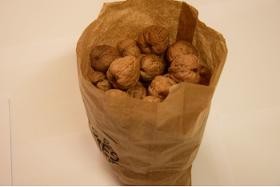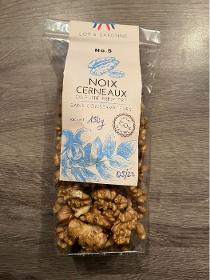- europages
- >
- COMPANIES - SUPPLIERS - SERVICE PROVIDERS
- >
- walnuts
Results for
Walnuts - Import export
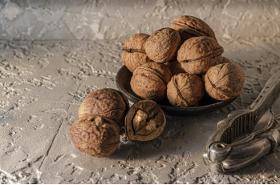
BAYCELIK TARIM ÜRÜNLERI
Turkey
With its rich nutritional value, walnut has been growing in our lands for centuries and ranks 4th in the world in terms of production. There are also different varieties locally. Wet and dry walnuts, fresh walnuts, organizing walnuts and green shelled walnuts are known varieties. At Bayçelik, you can order walnuts according to the harvest characteristics. Options such as small or large walnuts, new crop walnuts can be effective on walnut prices. Therefore, you can contact our company in line with your needs and place your order.
Request for a quote
HUNGARIAN FLAVOURS LTD.
Hungary
Walnuts, which are especially popular in winter, contain a lot of useful nutrients for our health. It is an essential element of both traditional and reform nutrition. The walnut or nut tree is a genus belonging to the Nutaceae or Nutraceae family. It is native to Hungary as well, and in the Carpathian basin you can find two types more often: one is the edible ordinary walnut, and the other is the black walnut planted as an ornamental tree in Europe. It has spread in folk medicine due to its blood purifying effect, and is used in cases of gastritis and enteritis. Externally, it is used to treat skin diseases, acne, ulcers, and eczema. Rich in minerals. The calcium content helps maintain the health of bones and teeth, contributes to the prevention of osteoporosis, and plays a role in the proper functioning of nerves and muscles. Zinc is necessary for the production of insulin, growth and the metabolism of carbohydrates, proteins and fats.
Request for a quote
HUNGARIAN FLAVOURS LTD.
Hungary
Sesame was cultivated five thousand years ago in ancient India, from where it spread worldwide through Japan and China. In ancient times, it was known and held in high esteem by almost everyone, its healing and strengthening effects were attributed to it. Thanks to its composition of tiny seeds, it is an extremely valuable food, sesame seeds are also considered the king of seeds. Due to its antioxidant properties, vitamin E protects against the harmful effects of free radicals, protects the cell membrane, and delays the aging process. The vitamin B1 contained in it is necessary for the functioning of vital enzymes and plays an important role in carbohydrate metabolism. Sesame seeds are also rich in vitamins A and B2, phosphoric acid and lecithin. The latter component is a natural, fat-like substance, which is an important building block of the cell wall and plays an important role in the proper functioning of the nervous system, liver and heart.
Request for a quote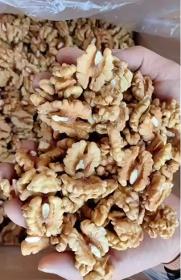
HUNGARIAN FLAVOURS LTD.
Hungary
Loose, packed, vacuum packed walnut kernels Halves content: 80 % Purity 99.99 % Moisture: max 5 % Colour: extra light
Request for a quote
HUNGARIAN FLAVOURS LTD.
Hungary
Light quarters and eights walnut kernels in 500g Purity 99.99 % Moisture: max 5 % Colour: light
Request for a quote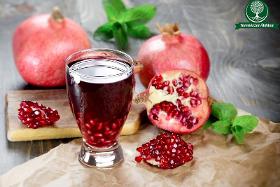
HUNGARIAN FLAVOURS LTD.
Hungary
Pomegranate is one of the oldest known fruits. Deciduous tree, member of the punicaceae family. It is native to the Himalayan region of India and Iran. It has now also appeared in the Mediterranean areas of Europe and South America. It is widely cultivated in many areas of the world. It has been consumed for a long time not only because of its pleasant taste, but also because of its healing effect. Its fruit is spherical, usually varying in color from yellow to red. The 3-4 mm thick, slightly shiny, leathery skin of its apple-sized fruit is easy to cut when ripe, and hardens later. Its many-seeded berries have a pleasantly sweet and sour taste. Each seed is surrounded by a garnet-red, juicy seed coat, these seed coats are the edible part of the fruit. It has been used for centuries for healing purposes, considered a "force of nature".
Request for a quote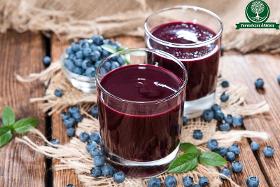
HUNGARIAN FLAVOURS LTD.
Hungary
The bilberry is a fruit-bearing plant belonging to the heather family. Its fruit and leaves were also known and used in folk medicine. European medicine used it years ago to alleviate the symptoms of diarrhea. Bilberry contains tannins, which reduce intestinal inflammation, so it can also be used in the treatment of diarrhea. It is a natural source of vitamin K, which is responsible for bone health, vitamin C, which reduces the harmful effects of free radicals, and manganese. By consuming cranberry juice, our body can get healthy dietary fibers, which promote digestion and the efficient functioning of the intestinal system. It is rich in phenolic components, such as flavonols, quercetin, catechin, tannins, ellagitannin, which have antioxidant properties and play a role in the prevention of some chronic diseases. Fruits and vegetables rich in various phenolic components contribute to reducing the risk of Alzheimer's disease.
Request for a quote
HUNGARIAN FLAVOURS LTD.
Hungary
Loose, packed, vacuum packed walnut kernels Halves content: 80 % Purity 99.99 % Moisture: max 5 % Colour: light
Request for a quote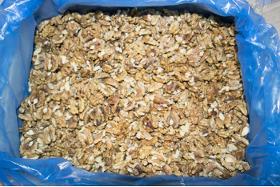
HUNGARIAN FLAVOURS LTD.
Hungary
Loose, packed, vacuum packed walnut kernels Halves content: 30 % Purity 99.99 % Moisture: max 5 % Colour: light
Request for a quote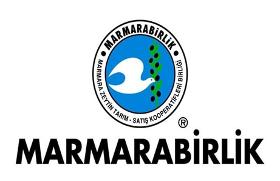
YADA GIDA VE DIS TICARET
Turkey
Shelled walnuts, perfect for snacking and baking.
Request for a quote
HWB NUSSWELT GMBH
Germany
Nut pastes are a mass of very finely ground roasted nuts. Our high-quality nut pastes are often used in the production of praline fillings, mousses or crunchy layers in cakes and, in particular, in the production of ice cream.
Request for a quote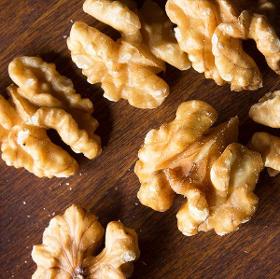
HWB NUSSWELT GMBH
Germany
Your products deserve the best Nuts and kernels – our new manufacturing technology from Bühler is as diverse as their processing options. From cleaning to roasting, step by step, we can offer our customers all the optimal processes. Whether for continuous production or flexible batch operation – gentle treatment of the nuts and kernels is always our top priority.
Request for a quoteDo you sell or make similar products?
Sign up to europages and have your products listed

HUNGARIAN FLAVOURS LTD.
Hungary
Throughout history, coconuts have been a staple food for indigenous people. The fruit of the coconut palm (Cocos nucifera) develops on the tree in clusters containing five to twelve fruits. It comes from the islands of the Indian Ocean or the archipelago between Asia and Australia. The fat obtained from its flesh, coconut oil, contains triglycerides, tocopherols, phospholipids and fatty acids, which have excellent antiviral (antiviral) and antibacterial (antibacterial) effects. 83% of its fatty acid composition is saturated fatty acid, 7% monounsaturated, 2% polyunsaturated fatty acid. 50% of the fatty acids in coconut are lauric acid, which has powerful anti-microbial, antiviral, antibacterial, anti-protozoal and fungicidal effects. Its medium-chain fatty acids (MCT) can be absorbed directly, without transformation.
Request for a quote
HUNGARIAN FLAVOURS LTD.
Hungary
Bulgur is actually broken wheat. Many people know it as Turkish rice. It is mostly preferred by Middle Eastern and Turkish cuisine, but nowadays it is becoming more and more widespread and is consumed in many areas of the world. The still unripe or husked wheat grains are steamed, dried, and then coarsely crushed. It is made from durum wheat, which contains straight-chain amylose starch. Enzymes break it down into dextrose more slowly, therefore raising blood sugar more slowly, thus reducing the glycemic index. Since it is steamed in advance, the cooking time is shorter than e.g. of the better-known semolina. Research has shown that regular consumption can contribute to the prevention of tumors, diabetes, obesity, cardiovascular and digestive system diseases.
Request for a quote
HUNGARIAN FLAVOURS LTD.
Hungary
Mustard is a herb belonging to the cruciferous plant family and one of the oldest and most commonly known food seasonings. Due to its characteristic aroma and healing effect, there are records of its use as a spice and as a medicinal plant from before our era. In addition to the yellow (or white) mustard seed, there are also known oriental (or Indian) and black varieties. Yellow mustard seed is used especially in the western states against many diseases. It is used against arteriosclerosis, high blood pressure, gout, metabolic disorders, gall and liver disorders, digestive complaints, constipation, flatulence and skin rashes. It stimulates blood circulation, has a cleansing effect on the vascular system, reduces blood clotting and blood clot formation. The consumption of mustard seeds is also attributed to a general detoxification effect, both internally and externally.
Request for a quote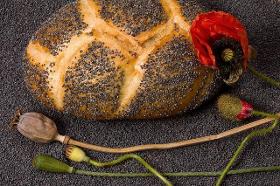
HUNGARIAN FLAVOURS LTD.
Hungary
Poppy is originally a plant native to the Middle East used as a spice, and is an extremely rich source of calcium and carbohydrates. The Egyptians, Babylonians and Assyrians were already involved in poppy cultivation, and the Romans used a drink consisting of a combination of honey, poppy and wine to increase the performance of athletes during the first Olympic Games. In our article, we take a look at the possible fields of application of the poppy today and give you ideas for some home practices. As it is rich in dietary fiber, electrolytes, minerals and vitamins, the poppy can have a beneficial effect on our entire circulation and body. Thanks to its anti-inflammatory and antioxidant properties, its regular use prevents premature cell damage and improves the body's immunity.
Request for a quote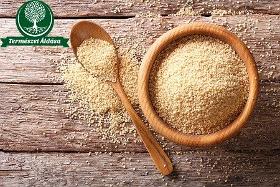
HUNGARIAN FLAVOURS LTD.
Hungary
Couscous is of Berber origin, the word means "well rolled", which refers to its traditional preparation. It was originally made by hand from durum wheat semolina: the steamed semolina was rolled by hand into small balls, then rolled in flour and spread out to dry to keep it crisp. It has been a national dish in North Africa for a thousand years, and its consumption is widespread even in Arab gastronomy and in the Middle East, but nowadays it is increasingly popular in many areas of the world, including in our country, thanks to its healthy nature and simple use.The most significant mineral in couscous is selenium, which mediates a wide range of biological effects.
Request for a quote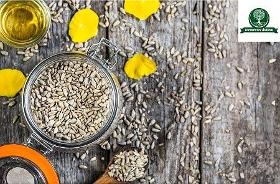
HUNGARIAN FLAVOURS LTD.
Hungary
The sunflower spread from North America to Europe during the great geographical discoveries. It became established as an ornamental plant in the gardens of gentlemen, then moved to peasant gardens, and later to fields. Even today, its seed is one of our favorite snacks, and its oil is an important element of healthy nutrition. Its moderate consumption has a positive effect on our body as a whole thanks to its valuable ingredients. According to research, it contributes to the prevention of many diseases. It is rich in magnesium, a mineral that plays an important role in the metabolism of proteins, fats and carbohydrates, in normalizing circulation, in reducing cholesterol levels. The phosphorus contained in it contributes to the proper functioning of the nervous system, and plays an important role in the development and strengthening of bones and teeth.
Request for a quote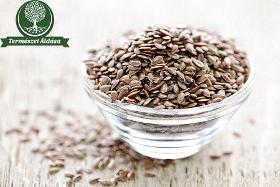
HUNGARIAN FLAVOURS LTD.
Hungary
Flaxseed has been known and used for centuries in various forms of folk medicine. It is considered beneficial for almost the entire body. It is used to stimulate brain function, to treat respiratory diseases (such as bronchitis), skin complaints, joint diseases, and many problems of the digestive system. It is considered a natural anti-inflammatory, it is recommended for the regeneration of mucous membranes, intestinal diseases, constipation, and the tea made from it relieves menstrual cramps. Flaxseed is rich in many minerals and vitamins A, B, C, D and E. It contains 35% fat, a significant part of which, 72%, is essential. An excellent source of omega-6 fatty acids. In addition, it contains an abundance of essential omega-3 fatty acids, which are essential for our body, but the body cannot produce them, so we have to take them in through nutrition.
Request for a quote
HUNGARIAN FLAVOURS LTD.
Hungary
Buckwheat is a gluten-free pseudocereal (fake grain) belonging to the Polygonaceae family. Thanks to its high nutritional value, it is known for its many beneficial effects on health. It contains valuable proteins, fatty acids, dietary fiber, minerals and other health-supporting components such as phenols and sterols. Due to its components, it is considered a functional food. Any food that not only has a nutritional function, but also helps the human body to function more efficiently and healthily with one or more additional properties can be called functional. Some research proves that regular consumption of buckwheat reduces the appearance of inflammation. It optimizes the cholesterol level, reduces the level of LDL, also known as "bad" cholesterol, while increasing the "good" HDL cholesterol in the blood, thus, it plays an important role in the prevention of heart diseases.
Request for a quote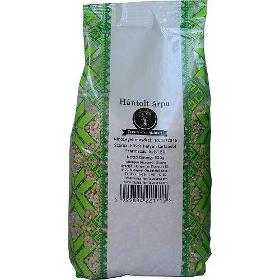
HUNGARIAN FLAVOURS LTD.
Hungary
Barley is a monocot plant belonging to the grass family. Due to its gluten content, it is cereal-based and cannot be consumed by people who are sensitive to flour. Barley likes a cooler, wetter climate and does not feel bad at high altitudes: it can be found up to 1,000 meters in the European snows and up to 4,300 meters in the Himalayas. The most ancient and still the most important cereal of the cold temperate zone, its place of origin is Tibet and the Central Chinese Highlands. Peeled barley? What does this procedure mean? Hulling is the separation of the shell and the inner part of the kernels of certain cereals or legumes suitable for this purpose (rice, peas, barley, millet, sorghum, oats, etc.) using different hulling machines, preferably with minimal flour and debris formation. From the thus obtained core, a peeled product suitable for human consumption is produced with additional surface treatment and refining processes.
Request for a quote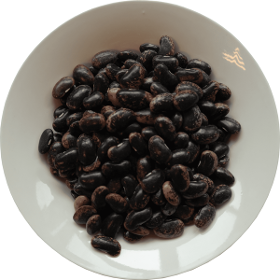
HUNGARIAN FLAVOURS LTD.
Hungary
People have been growing and eating legumes for a long time, as evidenced by archaeological finds from Mexico and South America. Growing beans is part of human culture and history. In ancient Egypt, beans were revered not only as food, but also as a symbol. The popularity of the plant grew unstoppably over time: through Indian traders, it was introduced to parts of South and Central America suitable for cultivation, from where it came to Africa and later to Asia, which also has a long history of bean consumption. Today, India and China are among the largest bean growing countries. The plant reached Hungary in the 16th century and its popularity has been unbroken ever since. Purple salad beans are a particularly popular choice, loved by both young and old. Legumes, including beans, are also very nutritious: they contain proteins, carbohydrates and fats. They also have multiple healing properties.
Request for a quote
HUNGARIAN FLAVOURS LTD.
Hungary
There are many arguments and results about the positive effects of beans on the human body and in favor of their consumption. Research has found that those who eat more leguminous vegetables will be less exposed to the risk of heart disease - this may be related to the phyto-chemicals found in beans, among other things. Nutrition experts recommend consuming legumes as often as possible, because in addition to being delicious, healthy, and "doing" a lot for us, they also contain a wide range of natural substances that protect against cancer. Beans provide us with water-soluble fiber as well as saponins and phytosterols, which help lower blood cholesterol levels. Research has established that consuming 10 grams of water-soluble fiber per day (about 200-250 grams of beans contains this amount) can reduce the level of LDL cholesterol in the blood by up to 10 percent compared to the baseline value. White salad beans are one of the most popular and well-known types of beans.
Request for a quote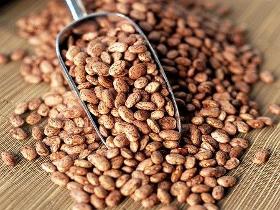
HUNGARIAN FLAVOURS LTD.
Hungary
Native to America, the pinto broad bean, a legume, was already known and enjoyed centuries ago. Folk medicine used it to treat many problems, such as eczema, acne, hiccups, rheumatism, diarrhea, burns, urination and cardiovascular complaints. Thanks to its valuable ingredients, it plays an important role in both disease prevention and dietary treatment. Research proves that pinto beans help prevent obesity and type 2 diabetes through their complex carbohydrates, high fiber and protein content, and other valuable ingredients. Its regular consumption reduces the cholesterol level, thereby reducing the risk of heart and vascular diseases. Its fibers contribute to the proper functioning of the digestive system, the prevention of constipation and colitis, and the protection of the vascular system. The American Journal of Clinical Nutrition c.
Request for a quoteResults for
Walnuts - Import exportNumber of results
234 ProductsCountries
Company type
Category
- Wood and furnishing - treatment and protection (36)
- Juices, fruit and vegetable (28)
- Nuts (24)
- Dried fruits (24)
- Drills, woodwork (10)
- Hunting weapons and ammunition (10)
- Foods, health (8)
- Food - import-export (7)
- Bakery and confectionery industry - machinery and equipment (6)
- Sorting and sizing equipment for fruits and vegetables (6)
- Birdseed (4)
- Saplings (4)
- Maps (3)
- Chestnuts and sweet chestnuts (2)
- Dietary and organic foods (2)
- Domestic articles, wooden (2)
- Flour-milling (2)
- Fruit trees (2)
- Furniture - hotels, bars, cafés and restaurants (2)
- Insulating panels, asbestos-free (2)
